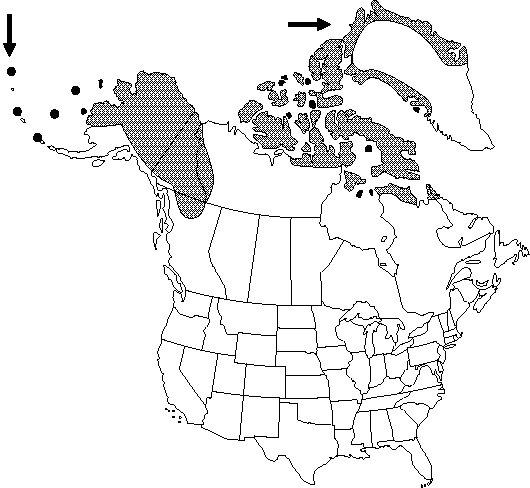Ranunculus sulphureus
in C. J. Phipps, Voy. North Pole, 202. 1774.
Stems erect from short caudices, 3-20 cm, sparsely pilose to glabrous, each with 1-3 flowers. Roots slender, 0.4-1 mm thick. Basal leaves persistent, blades transversely elliptic to orbiculate, 1-3 × 1-3 cm, base obtuse to nearly truncate, margins crenate or else blades shallowly 3-lobed with crenate lateral lobes, apex rounded or rounded-apiculate. Flowers: pedicels sparsely brown-pilose; receptacle brown-pilose; sepals 6-8 × 3-6 mm, abaxially densely brown-hispid; petals 5(-6), 8-12 × 6-10 mm; nectary scale glabrous. Heads of achenes ovoid-cylindric or ovoid, 6-7(-9) × 5-6 mm; achenes 1.8-2.2 × 1.4-1.8 mm, glabrous or sparsely brown-hispid; beak slender, straight or curved, 0.8-1.4 mm. 2n = 42, ca. 80, ca. 84, 96, ca. 98.
Phenology: Flowering late spring–summer (Jun–Sep).
Habitat: Meadows and seepy slopes, often around late snowbeds, bogs, and streamsides
Elevation: 0-1100 m
Distribution

Greenland, B.C., Nfld. and Labr. (Labr.), N.W.T., Nunavut, Que., Yukon, Alaska, Eurasia.
Discussion
Material of Ranunculus sulphureus from the Aleutian Islands has 3-lobed leaves similar to those of R. nivalis. These plants are sometimes separated as R. sulphureus var. intercedens.
Selected References
None.